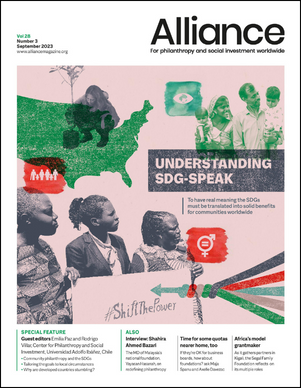Since they work for business boards, would they be an opportunity for European foundations too?
Should a time-limited quota be introduced in relation to gender diversity on foundations’ boards? When Alliance magazine’s editors asked us this question, our answer was: the matter is complex and needs unpacking, but ultimately, yes.
In 2011, France enacted the so-called Copé-Zimmerman law to impose a gender quota of a minimum of 40 per cent women for boards of companies with over 250 employees. Interestingly, this law divided even that section of French public opinion which supported greater gender equality. Some praised it, seeing it as a much-needed tool to eliminate discrimination and promote de facto equality. Others, however, feared that women might end up being perceived as ‘numbers’: they would be on boards just because of their sex. Today, though, as Fondation de France’s recent study conducted by researcher Hazal Atay (Sciences Po) and Anne Cornilleau (head of studies, FdF) affirms, France is the world’s leading country in terms of gender-parity within boards of companies (more than 46 per cent in 2021), the ratio having tripled since the enactment of the law.
 Fondation de France reunion in Paris. Credit: L. Lung, Fondation de France.
Fondation de France reunion in Paris. Credit: L. Lung, Fondation de France.
Subscribe now from only £45 a year!
This article is only available for our subscribers
Existing users can login here






